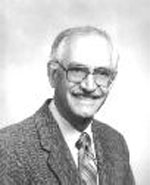News & Events
Westminster College Biology Professor to Give Biodiversity Talk
Posted on Wednesday, March 14, 2001
Dr. Clarence E. Harms, professor of biology at Westminster College, will continue the Westminster College Diversity Symposium with a talk on Biodiversity, Thursday, March 22, at 7 p.m. in room 166 of the Hoyt Science Resources Center.
"The field called biodiversity emerged in the last third of the century as a way of denoting the studies of all types of living creatures, cataloging them in a systematic way and figuring out how the declining numbers of kinds of creatures will play out in the big picture of evolution," said Harms. "The emphasis I will give is on the way we biologists attempts to do the above, and what we see for the future of our biosphere.
"I'll talk about diversity in our region compared with the tropics and the polar regions. I'll try to emphasize how political some of the efforts to study biodiversity have become because the rich countries hold most of the financial resources, and the poor countries hold most of the biodiversity," Harms said.
"My life as a teacher of biology has been enriched by travel to places where biodiversity is extraordinary. I've taken over 400 students to tropical habitats in January Terms to study biodiversity. And in the summer of 1999, I started managing ecotours of alumni to such places where we did a great amount of hiking and scuba diving," Harms added. That summer I had two groups in Ecuador, including the Galapagos Islands where biodiversity abounds and is, simultaneously, threatened. Following the Ecuador ecotours, I spent the fall semester of 1999 in Alaska, another special place for my favorite animals, whales.
"I am Director of our Biology Field Station, a local sanctuary where we can offer students the opportunity to investigate our unique biodiversity. My biology course, titled Biodiversity, is offered each fall for students who have had one full year of introductory biology," We visit, among several places locally such as the Mercer Bog, a rare remnant of an old geologicl lake that now abounds with plants that live no other place in our region--like pitcher plants, sundews, dwarf cranberry. I enjoy teaching students!"
Harms, who has been with Westminster College since 1969, earned his undergraduate degree from Tabor College, his master's from the University of Kansas, and his Ph.D. from the University of Minnesota.

More Stories



